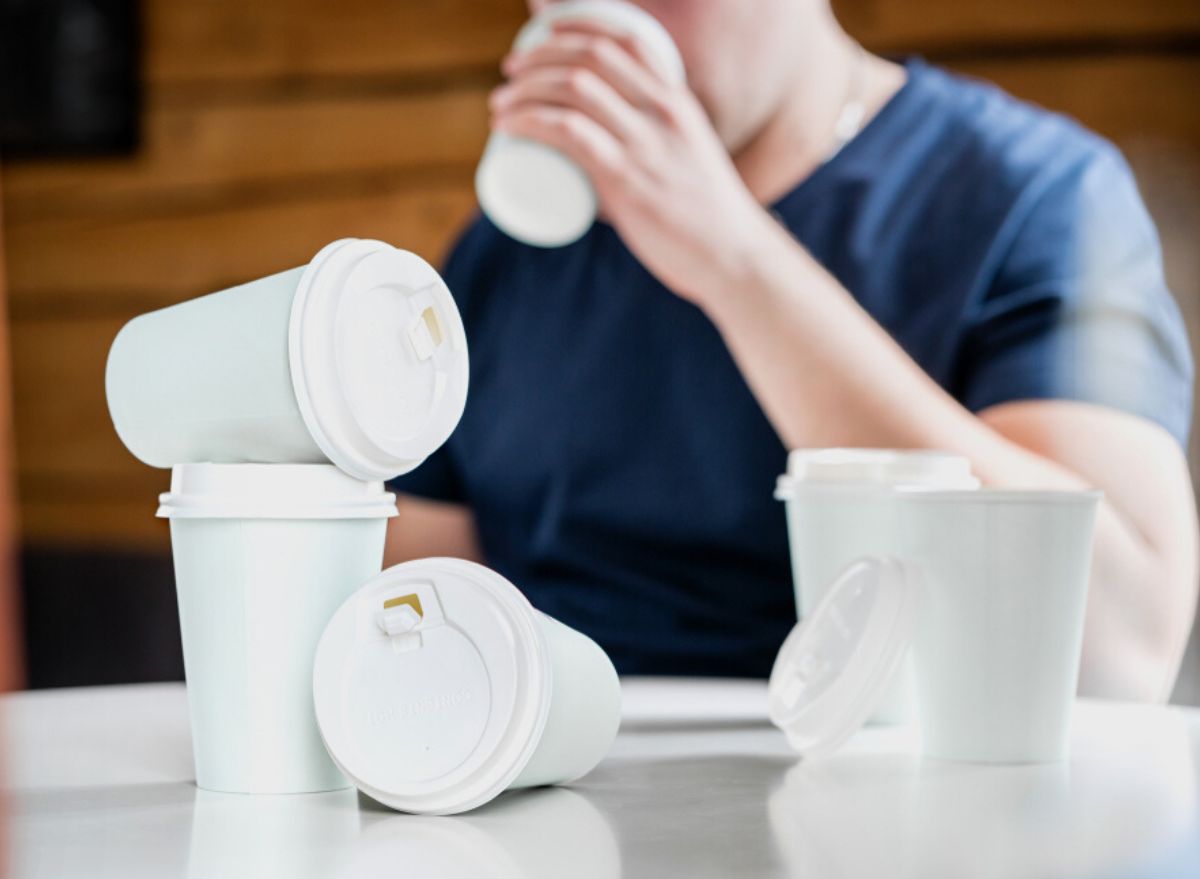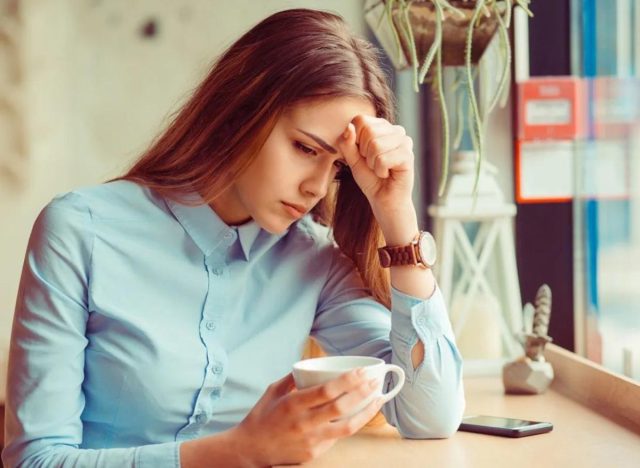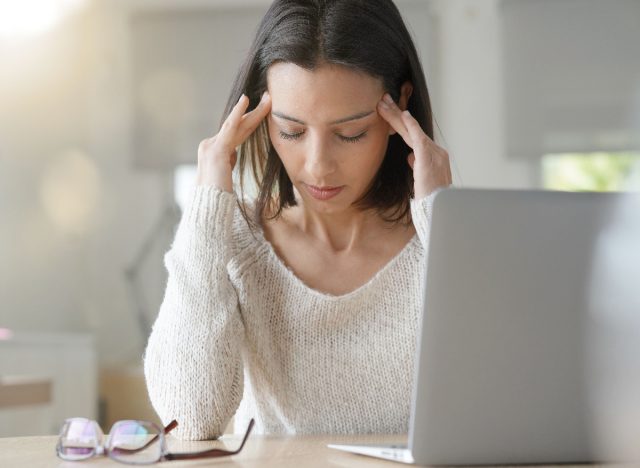How Much Caffeine Is Too Much?

For some people, it isn’t an option to start their day without a cup of coffee. And for others, a caffeine jolt is a must once the 3 PM slump hits. Sure, caffeine helps people feel energized and have more mental clarity. But there is a limit to how much caffeine people should be including in their day if they want to stay safe, because too much of it can become quite dangerous.
If you are among the roughly 80% of Americans that consume coffee or other caffeinated beverages every day and are wondering how much caffeine is too much, keep reading to learn the answer to your important question.
And if you decide that your caffeine intake is in the safe zone and you want to treat yourself to a beverage today, check out these 13 Low-Calorie Starbucks Drinks.
What is caffeine?

Before digging into how much caffeine we can safely consume, it is important to understand what it truly is.
Believe it or not, caffeine is a drug. But unlike sedatives, which make us sleepy and calm, caffeine is a stimulant. Specifically, this drug stimulates the central nervous system, resulting in a feeling of alertness around an hour after it is ingested.
Caffeine can be found from sources like coffee beans, cacao beans, kola nuts, tea leaves, yerba mate, and the guarana berry, and it can also be added to sodas, as well as other foods and drinks.
RELATED: New Study Links Coffee to Lower Diabetes Risk
How much caffeine is safe to consume daily?
The recommended maximum amount of caffeine that a person can consume depends on a few factors, including their pregnancy status, their age, their heart-health, and if a person has anxiety. All of these situations may require a person to either avoid or severely limit their intake of caffeine.
The FDA has stated that most healthy adults should limit their caffeine intake to a maximum of 400 milligrams per day (equivalent to around 3-5 cups of coffee). Of course, there are always exceptions to this (and any) rule. For those who are pregnant, the American College of Gynecology suggests limiting caffeine intake to a maximum of 200 milligrams per day. However, some experts suggest that pregnant people should avoid caffeine entirely, as intake is linked to negative health outcomes during pregnancy.
What are the symptoms of too much caffeine?

While 400 milligrams of caffeine may sound like a lot, it is entirely possible to exceed that mark, especially if you are hitting up the Starbucks drive-through multiple times a day, or you lean on energy drinks that are jam-packed with this stimulant.
There have been reports of people who experienced seizures and an increased heart rate with overconsumption of energy drinks. However, it is hard to determine whether these effects were due to the caffeine or the other ingredients found in these drinks.
There is also evidence that taking in more than 400 milligrams every day is linked to an increased risk of experiencing unstable bladder among women.
Larger doses of caffeine may cause people to feel sleepless, anxious, jittery, irritable, have a headache, and experience diarrhea. Others may experience an upset stomach, as this stimulant can stimulate the digestive tract.
The caffeine content in popular drinks
Here’s approximately how much caffeine is in your favorite drinks.
- Coffee: “A cup (8 ounces) of brewed coffee can have various caffeine amounts—from 70-140 milligrams per cup, depending on brew and bean,” says Monica Auslander Moreno, MS, RD, LD/N, registered dietitian and nutrition consultant for RSP Nutrition.
- Espresso: 64 mg per oz.
- Decaf coffee: 2 mg per cup
- Black tea: 47-50 mg per cup (depends on variety + steep time)
- Green tea: 29-50 mg per cup (depends on variety + steep time)
- Coke: 34 mg per 12 oz can
- Diet Coke: 46 mg per 12 oz can
- Pepsi: 38 mg per 12 oz can
- Barq’s Root Beer: 22 mg per 12 oz can
- Mountain Dew: 91 mg per 12 oz can
Can you have caffeine withdrawal?

Yes, you can, and it can be both physical and mental. “You can have a physical (and psychological) dependence on caffeine,” says Moreno.
The most commonly reported caffeine withdrawal issues are:
- headache
- fatigue
- irritability
- anxiety
- tremors
- decreased concentration
How to feel energized without caffeine
Caffeine is a go-to remedy to feel energized and alert, but it isn’t the only solution. If you want to limit your caffeine intake but you still want to feel that pep in your step, here are some other solutions that may do the trick for your needs:
- Include exercise in your day
- Expose your body to the natural sunlight (with SPF and a sunhat, of course)
- Ensure that you are properly hydrated
- Prioritize adequate, quality sleep
- Have a mid-day snack that provides a balance of low-glycemic carbohydrates, protein, and fiber.
- Source: https://www.ncbi.nlm.nih.gov/books/NBK519490/
- Source: https://www.acog.org/womens-health/experts-and-stories/ask-acog/how-much-coffee-can-i-drink-while-pregnant#:~:text=Research%20suggests%20that%20moderate%20caffeine,energy%20drinks%2C%20and%20soft%20drinks.
- Source: https://pubmed.ncbi.nlm.nih.gov/32843532/







